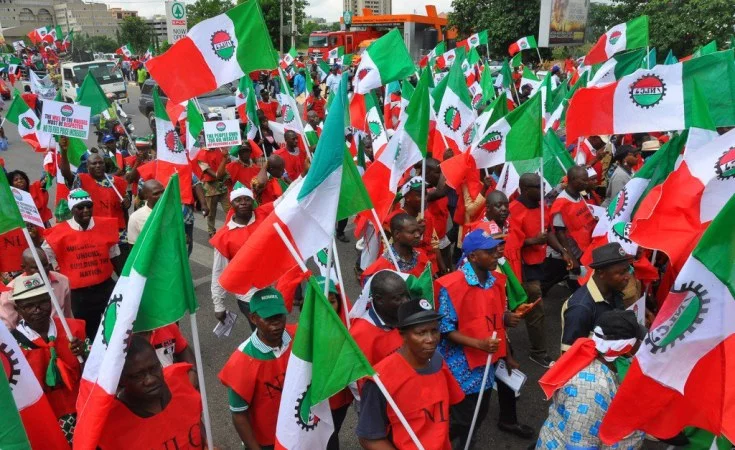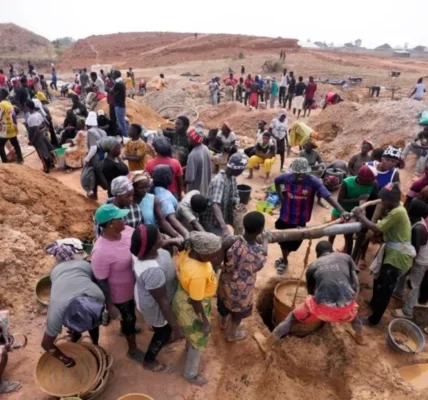
IN Nigeria, the debate over the appropriate minimum wage for workers has been a long-standing and complex issue. As the country grapples with economic challenges, regional disparities, and the need for social justice, finding a balance between fair compensation for workers and economic sustainability has become a pressing concern.
This discussion has raised questions about the impact of increasing the minimum wage, the role of government in supporting workers, and the need for accountability and transparency in policy making. Both workers and the government need to explore innovative solutions and collaborative approaches to address these challenges and promote economic development for all citizens.
Legal and social context
The debate around the appropriate minimum wage for Nigeria’s workers is a complex and contentious issue that has been ongoing for many years. On one hand, some argue that a higher minimum wage is necessary to provide workers with a decent standard of living and to reduce poverty. They argue that a higher minimum wage will stimulate consumer spending, boost demand for goods and services, and ultimately strengthen economic development.
On the other hand, some argue that a higher minimum wage could have negative effects on businesses, leading to job losses, reduced hours, and increased prices for consumers. They argue that a higher minimum wage could also lead to increased inflation, which could further harm the economy.
Economic and democratic implications
In the context of democracy, a higher minimum wage is seen as a way to promote social justice and reduce income inequality, which are important pillars of a democratic society. By ensuring that workers are paid a fair wage for their work, a higher minimum wage can help to ensure that all citizens have the opportunity to participate fully in the economic and social life of the country.
Ultimately, the appropriate minimum wage for Nigeria’s workers is a balancing act between the need to provide workers with a decent standard of living and the need to ensure that businesses can remain competitive and create jobs. It is important that all stakeholders, including government, employers, and workers, come together to find a solution that works for everyone and promotes economic development and democracy.
Broader issues needing attention
As Nigeria grapples with the pressing issue of determining an appropriate minimum wage, whether it be N60,000, N62,000, or a higher amount, it is vital to consider the implications for both workers and the government. The imperative for striking a balance between economic viability and social equity has sparked intense debate and scrutiny. In this context, it is crucial to delve into the underlying factors and potential solutions that can ensure a fair and sustainable wage structure for all stakeholders involved.
Potential solutions and recommendations
Phased and incremental increases: Instead of a sudden and drastic increase in the minimum wage, a phased and incremental approach could be adopted. This would allow businesses to adjust gradually to higher labour costs and mitigate the risks of inflation and job losses.
Regional wage disparities: Consideration should be given to regional differences in economic conditions and cost of living when setting minimum wage levels. This could help address disparities between regions and ensure that workers are adequately compensated based on local conditions.
Support for small businesses: The government could provide support and incentives for small and medium-sized enterprises to help them cope with higher labour costs. This could include tax breaks, access to credit, and skills training programs to improve productivity and competitiveness.
Social safety nets: To protect vulnerable workers and mitigate the impact of job losses, social safety nets such as unemployment benefits and job training programs could be expanded. This would help workers transition to new employment opportunities and support those most affected by minimum wage increases.
Transparency and accountability: Both workers and the government should advocate for transparency and accountability in the implementation of minimum wage policies. This includes ensuring that minimum wage laws are enforced, monitoring compliance by businesses, and holding policymakers accountable for their decisions.
Tackle corruption and excessive spending: Addressing corruption and reducing excessive spending by political appointees could free up resources that could be redirected towards supporting workers and promoting economic development. This would require political will, institutional reforms, and effective anti-corruption measures.
Dialogue and collaboration: Workers, government officials, employers, and other stakeholders should engage in constructive dialogue and collaboration to find common solutions to the challenges surrounding the minimum wage. This could involve labour unions, business associations, civil society organisations, and policymakers working together to address concerns and find sustainable solutions.
By taking a holistic and collaborative approach, both workers and the government of Nigeria can work towards achieving a fair and sustainable minimum wage that promotes economic development, social justice, and democratic dividends for all citizens.
Conclusively, the discussions and analysis presented in this piece highlight the multifaceted nature of the minimum wage debate in Nigeria. As workers and the government navigate complex economic and social issues, it is crucial to consider the impact of minimum wage increases on businesses, regional disparities, and vulnerable populations.
By adopting a phased and collaborative approach, implementing social safety nets, and promoting transparency and accountability, stakeholders can work towards a fair and sustainable minimum wage system that benefits workers and the economy as a whole. Through dialogue, engagement, and shared responsibility, Nigeria can move closer to realising the democratic dividends and economic opportunities that its citizens deserve.













